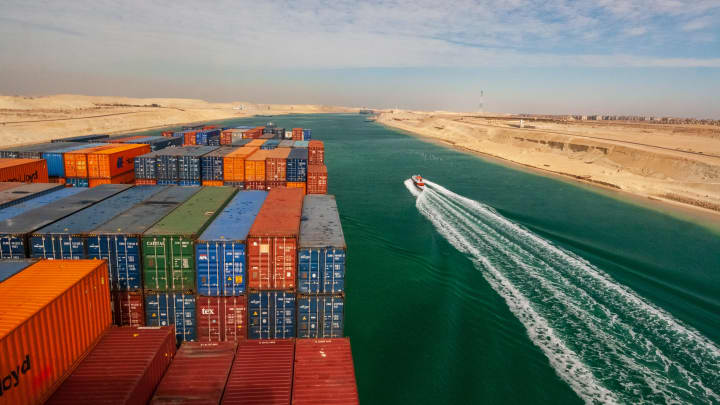
WASHINGTON — The strong released Friday capped off a year of economic wins for the Biden administration. Now, global shipping delays caused by attacks on cargo vessels in the Red Sea are threatening to blunt the momentum.
The Labor Department reported that in December, beating economists' estimates by over 40,000 jobs. The unemployment rate also remained steady at 3.7%.
But Danish shipping company announced that it will indefinitely, amid ongoing attacks from in the region. Maersk was one of several shipping companies that began away from the Suez Canal in December.
White House officials are keenly aware of the risk that shipping holdups could trigger a domino effect within the U.S. supply chain, which only recently appeared to recover from the impacts of COVID-19.
"Given what occurred during the pandemic we're very sensitive to the impact of supply chains and logistical logjams on the economy," said Jared Bernstein, chair of the White House Council of Economic Advisers, on a call with reporters Friday.
Shipping ports experienced in the first years of the pandemic, preventing some $24 billion worth of goods from finding their way into the U.S. market.
Lael Brainard, director of the National Economic Council, said that so far, the delays have had "a minimal impact," on energy costs.
"You've seen very little effect actually on prices at the pump," Brainard told CNBC's "Squawk on the Street" on Friday, though she called Maersk's actions "unacceptable."
Brainard did not mention the potential fallout for global manufacturing and consumer goods if the Red Sea remains too dangerous for major shipping lines to enter.
Current delays have already affected several companies that sell products in the U.S., including Sweden-based Ikea and British appliance firm Electrolux.
Biden's national security team is "working with a broad coalition of partners and in close contact with shippers on this," said Brainard.




